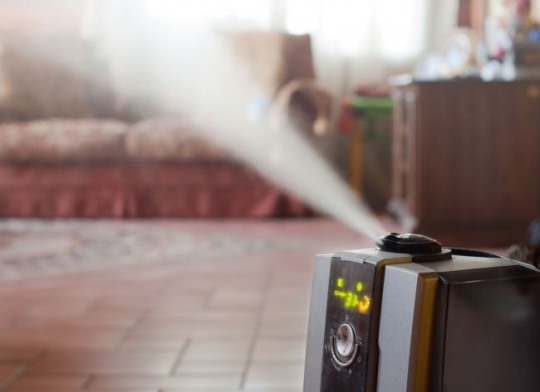South Korea is moving to distribute free air purifiers to day cares, nursing homes and schools to protect people most vulnerable to fine dust.
The measure, still under discussion at related ministries, would be a follow-up to President Moon Jae-in’s surprise directive last week to temporarily close down old coal-fired power plants to combat the country’s worsening air quality.
An official at the Education Ministry confirmed to The Korea Herald on Wednesday that it is currently reviewing the budget.
If the measure gets the green light, at least 160,000 day cares, kindergartens, elementary schools and nursing homes for the elderly nationwide will have an air purifier in every room. As many as 1 million South Koreans are expected to benefit.
 |
An image of air purifier (Herald DB) |
While the shutdown of outdated coal-powered plants is part of fundamental controls on dust emissions, installing air purifiers in classrooms and other places would help reduce the damage, the ministry official explained.
President Moon, who was sworn in a week ago, said during a visit to an elementary school on Monday that the government would “inject some 60 billion won ($53 million) to complete installing dust-measuring devices at some 11,000 elementary to high schools across the nation to constantly monitor air quality.”
Moon also added he would make sure classrooms and gyms at schools are equipped with air purifying devices so students can enjoy activities any time they want.
The Seoul Metropolitan Government welcomed the move.
The capital city said it will work hand in hand with the central government’s plan to protect the vulnerable from air pollutants and related health risks.
In line with the government’s efforts to combat fine dust, Seoul City said it plans to restrict traffic volume in the center of the city.
If the Ministry of Land, Infrastructure and Transport approves the plan, some 17 square kilometers surrounded by Seoul’s four main gates -- Namdaemun, Changuimun, Hyehwamun and Heunginjimun -- will be off limits to vehicles.
The city said it will introduce this new traffic policy as early as next year, along with measures of installing CCTV systems and charging penalties to those who drive in the designated area.
“In the so-called ‘green zone,’ all vehicles will be restricted, considering the increased traffic volume, environment issues and, most importantly, to reduce fine dust levels,” said Lee Sang-hun, the city government’s transportation policy head.
But when there is traffic congestion during rush hours, officials said it may adopt a plan B, such as only allowing preregistered vehicles and ecofriendly tour buses in the green driving zone.
Based on government data that showed outdated diesel cars are one of the main causes of air pollution here, the Seoul Metropolitan Government banned in April some 1.4 million diesel cars that were registered before 2005 from its roads.
By Kim Da-sol (
ddd@heraldcorp.com)





![[Exclusive] Hyundai Mobis eyes closer ties with BYD](http://res.heraldm.com/phpwas/restmb_idxmake.php?idx=644&simg=/content/image/2024/11/25/20241125050044_0.jpg)
![[Herald Review] 'Gangnam B-Side' combines social realism with masterful suspense, performance](http://res.heraldm.com/phpwas/restmb_idxmake.php?idx=644&simg=/content/image/2024/11/25/20241125050072_0.jpg)

